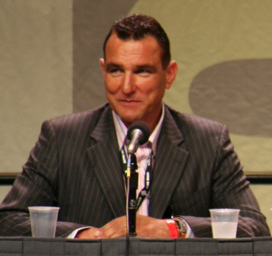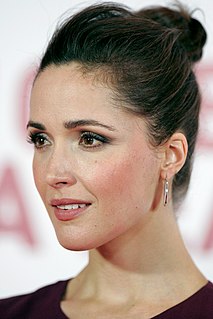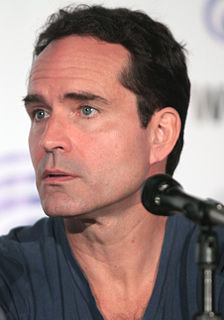A Quote by Hugh Laurie
In film, because you know where the ending is, characters can change, but in television, you substitute revelation for change, and that can be hard to pull off.
Quote Topics
Related Quotes
You see, I know change
I see change
I embody change
All we do is change
Yeah, I know change
We are born to change
We sometimes regard it as a metaphor
That reflects the way things ought to be
In fact change takes time
It exceeds expectations
It requires both now and then
See, although the players change
The song remains the same
And the truth is...
You gotta have the balls to change
I like working in television because it's an evolving story that you tell. That's also one of the things I don't like about it, too. Because sometimes it's hard, and just when I think I've nailed something, it changes or we have to change it or change the joke or the character is evolving in a way that I don't have control over.
Art, a book, a painting, a song, can definitely inspire change, whether it's a small change or a big change but you know there's novels I've read or a scene in a film that I've seen where I definitely inspired something and made a change or addressed an issue in my life or done something cliche like make a phone call.
Instead he thinks up the worst ending imaginable: Hemingway has Catherine die from hemorrhaging after their child is stillborn. It is the most torturous ending I have ever experienced and probably will ever experience in literature, movies, or even television. I am crying so hard at the end, partly for the characters, yes, but also because Nikki actually teaches this book to children. I cannot imagine why anyone would want to expose impressionable teenagers to such a horrible ending. Why not just tell high school students that their struggle to improve themselves is all for nothing?
I know the American Library Association has models for working with the poor. They do have that, and I think that we really need to put our efforts - if we want to think long-range and invest in the community so that we don't have to, you know, invest in prisons - into making a change, because I know that the library can make a change in a life, because it made a change in mine.
When you're really trying to make serious change, you don't want people to get caught up in emotion because change isn't emotion. Because change isn't emotion. Its real work and organization and strategy - that's just the truth of it. I mean, you pull people in with inspiration, but then you have to roll up your sleeves and you've got to make sacrifices and you have got to have structure.
You can't really gauge the difficulties of television. There's difficulties and joys that happen with an amazing, great team, when one is working. Television can be a very frustrating job for almost anybody working in television, because you're shooting episodically, and you don't know one scene from the next, and maybe they change around.
Two years gives you enough time to grow and to change, and to, you know, change your priorities. Change where you live, change your hair, change what you believe in, change who you hang out with, what’s influencing you, what’s inspiring you. And in the process of all of those changes in the last two years, my music changed.




































